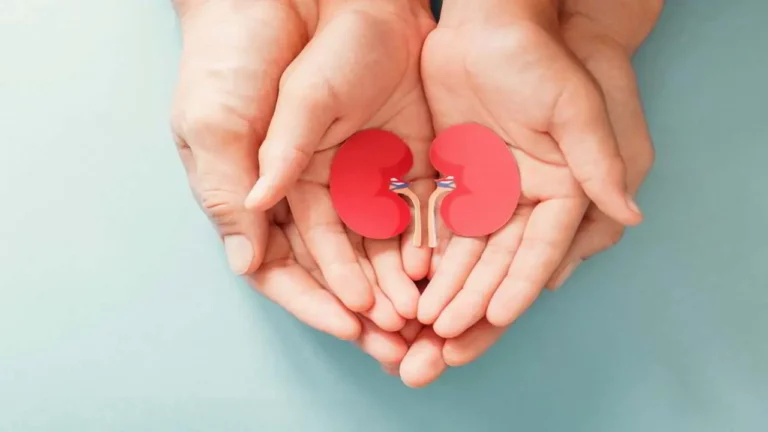Impotence is a common form of sexual dysfunction in men, when it is impossible to have sexual intercourse. The risk of male impotence increases after the age of 40.
What is impotence?
Impotence is a disorder of sexual function accompanied by the inability to achieve and maintain an erection long enough to have sexual intercourse. Impotence is characterized by changes in the degree of tension, shape and volume of the penis. Impotence can be diagnosed only in men (in women, a similar pathology is called sexual dysfunction).
How does impotence differ from erectile dysfunction?
The term erectile dysfunction is used in cases where more than 25% of sexual intercourse does not result in ejaculation. Given that in most cases there is a decrease in the quality of an erection, rather than its complete absence, impotence is called the last (most severe) stage of erectile dysfunction.
At what age does impotence occur?
Symptoms of impotence can appear at any age, but according to statistics, as the body ages, the risk of developing erectile dysfunction increases (for example, the likelihood of impotence at 16 is less than at 60). The average age at which impotence in men becomes regular is between 40 and 70 years.
The likelihood of impotence at an early age may increase due to hormonal imbalances, stress, depression, anxiety, and fear of failure in sex. Additional risk factors for developing impotence at a young age (e.g., 25-30 years) are bad habits (smoking and alcohol abuse).
After 40 years, there is a decrease in the secretory function of the glands of the body. Chronic diseases progress, and the medications used can cause side effects, affecting the frequency of erections and maintaining the penis in an excited state.
First signs of impotence in men
The first signs of impotence may occur occasionally and begin with the inability to maintain an erection during the entire sexual intercourse (partial impotence). The first signs of impotence in men also include the occurrence of an erection not before every sexual intercourse or only after strong stimulation.
External signs of impotence in men
Erectile dysfunction is characterized by the inability to maintain a sustained penile arousal. Other external signs of impotence in men:
- lack of spontaneous (morning and night) erections
- premature ejaculation;
- decrease in penile tension in the absence of ejaculation;
- decreased sensitivity of the penis;
- sexual impotence.
Erectile dysfunction may be accompanied by a decrease or loss of interest in sex (libido). Impotence is not diagnosed in case of deterioration in the quality or absence of an erection due to excessive sexual activity, untimely ejaculation against the background of irregular sexual activity, as well as in case of a gradual decrease in erection beyond the reproductive age.
Causes and types of impotence
Impotence can be congenital or acquired. Congenital or primary impotence is rare and is characterized by a complete lack of erection throughout life (due to abnormal development of the testicles or penis). Acquired or secondary impotence can develop under the influence of many factors, lifestyle changes, or various diseases. Types of acquired impotence:
- psychogenic
- age-related
- neurogenic
- hormonal (endocrine);
- vascular impotence.
Impotence can also occur as a result of urological diseases and medication. In the presence of bad habits, alcohol impotence and erectile dysfunction provoked by smoking can be diagnosed.
| Types of impotence | |
| Psychogenic | It occurs in the presence of factors that are not related to physiological pathologies, for example, anxiety, panic disorders, stress, depression. It may occur not with all but with some sexual partners or may be absent during masturbation. |
| Age | It occurs in men over 40 years of age. Triggering factors can be cardiovascular disease, diabetes mellitus, and dementia. |
| Neurogenic | Due to lesions of the central or peripheral nervous systems, the transmission of signals from the brain to the penis is impaired. |
| Hormonal (endocrine) | It is manifested by the absence or difficulty in achieving and maintaining an erection. Symptoms may include loss of interest in sex, decreased muscle mass, decreased body hair, and infertility. |
| Vascular | Risk factors for arterial and venous impotence include atherosclerosis, accelerated blood leakage from veins, diabetes mellitus, high cholesterol, varicose veins, obesity, and hypertension. |
| Medication | It develops as a side effect of taking certain medications or vaccinations. Some medications may not directly affect the genitals, but cause circulatory or hormonal disorders that suppress erection. |
Psychogenic impotence
Psychogenic erectile dysfunction occurs in the presence of factors that are not related to physiological pathologies. Mental disorders are common causes of impotence in young men. Risk factors for the development of psychogenic impotence:
- depression
- anxiety
- panic disorders
- stress
- conflicts
- experience of violence;
- anhedonia (loss of the ability to feel pleasure);
- low self-esteem;
- fear of sexually transmitted diseases.
Psychogenic impotence, which often occurs before the age of 30-40, can be accompanied by feelings of guilt, anxiety and worry. Erectile dysfunction of a psychogenic nature may occur not with all but with some sexual partners or, for example, be absent during masturbation. For the treatment of psychogenic impotence, medications (e.g., antidepressants) and cognitive behavioral therapy can be used.
Age-related impotence
The age at which erection problems become more frequent depends on the genetic characteristics of the body, as well as the presence of concomitant diseases. With age, there is a violation of the erectile tissue’s extensibility and a deterioration in the ability of the penile vessels to retain blood, which is a prerequisite for a strong erection.
The causes of impotence in men over 40 can be cardiovascular disease, diabetes mellitus, dementia, and the use of medications prescribed for the treatment of various chronic diseases. During the treatment of age-related impotence, drugs aimed at improving local blood circulation can be used.
Neurogenic causes of impotence
Neurogenic erectile dysfunction occurs as a result of neurological pathologies that affect the central or peripheral nervous system and disrupt the transmission of signals from the brain to the penis. Possible neurogenic causes of impotence include
- operations on the pelvic organs;
- spinal cord injuries (one of the causes of spinal impotence)
- damage to peripheral nerves;
- neurological diseases (the risk of impotence increases after stroke, Parkinson’s disease, Alzheimer’s
- disease, epilepsy and multiple sclerosis).
Severe neurogenic impotence can lead to partial or complete loss of sensitivity of the genitals. Therapy for neurogenic erectile dysfunction includes treatment of the underlying disease as well as post-traumatic rehabilitation.
Arterial and venous causes of impotence
Vasculogenic (vascular) erectile dysfunction can develop against the background of atherosclerosis (arterial impotence) or accelerated blood leakage from the veins (venous impotence). The risk factors for arterial and venous impotence are diabetes mellitus, high cholesterol, varicose veins, obesity, and hypertension. If the pathology is caused by arterial disease, there are difficulties with getting an erection, and in case of venous disease, with maintaining the penis in an erect state.
Impotence in young men can be a sign of cardiovascular disease, so in case of early sexual dysfunction, a cardiologist’s consultation and examination of the heart and blood vessels are required. As part of the treatment course, antispasmodics may be used, as well as drugs that normalize blood pressure and peripheral circulation.
Urological diseases leading to impotence
Impotence can be caused by complications of kidney, urethra, bladder, and genital tumors. For example, the risk of impotence increases with prostate adenoma. Accompanying symptoms include frequent urge to urinate, uncontrollable urination, burning sensation, discomfort, feeling of an incompletely emptied bladder, and stress caused by a decrease in the quality of sexual life.
To eliminate the symptoms, it is necessary to consult a urologist and undergo a treatment course, which may include taking antibiotics and anti-inflammatory drugs. You should also exclude alcohol and spicy foods from your diet, which can cause bladder irritation.
Medicinal causes of impotence
Impotence can develop as a side effect of taking certain medications or occur after vaccination. Drugs that potentially cause impotence are:
- antidepressants
- antihypertensive drugs
- diuretics;
- antihistamines;
- antiarrhythmic drugs;
- neuroleptics;
- antitumor drugs;
- sedatives;
- muscle relaxants;
- anticonvulsants.
The predominant symptoms depend on the list of active substances, duration and dosage of the medication. Some medications may not directly affect the genitals, but cause circulatory or hormonal disorders, which ultimately leads to erectile dysfunction. The treatment of impotence caused by medication is to adjust the dosages and regimens of medications or replace the medications used with analogues. Any changes to the list of medications used or the methods of their administration must be agreed with your doctor. It is dangerous to stop taking medications on your own due to the high risk of complications.
Impotence due to hormonal disorders and endocrine diseases
One of the factors that affect the development of impotence is diabetes mellitus and changes in hormone concentrations, in particular, a decrease in testosterone production (hypogonadism). Other causes of erectile dysfunction:
- thyroid gland diseases (hypothyroidism, hyperthyroidism);
- hyperprolactinemia (increased levels of the hormone prolactin);
- diabetic neuropathy.
Symptomatically, endocrine diseases and hormonal disorders are manifested by the absence or difficulty in achieving and maintaining an erection. Additional symptoms include loss of interest in sex, decreased muscle mass, decreased body hair, and infertility. To prevent endocrine impotence and related complications, it is necessary to treat the identified pathologies with periodic monitoring of hormonal levels and blood glucose levels, as well as to normalize weight and give up bad habits.
Which doctor should I see in case of impotence?
If you have signs of erectile dysfunction, you should make an appointment with a urologist or urologist-andrologist. Depending on the results of the examination and diagnosis, the doctor may refer the patient to other specialized medical specialists (for example, a neurologist, cardiologist, sex pathologist or proctologist). If signs of mental disorders are detected in impotence, you should consult a psychiatrist.
How is impotence diagnosed?
The urologist conducts an examination and prescribes tests. Diagnosis of impotence may include:
- ultrasound examination of the genitals, urinary system
- laboratory tests;
- vasoactive test (to determine the speed and quality of penile erection)
- arteriography (X-ray with contrast agent);
- measurement of blood pressure in the vessels of the penis;
- penile biothesiometry (sensitivity test).
The doctor also collects data on the presence of chronic diseases and bad habits. In addition, he can clarify information about the list and duration of medications.
What tests should I take in case of impotence?
Laboratory tests of blood, urine and prostate secretions are performed to assess the clinical picture. Tests prescribed in case of impotence can detect signs of diabetes mellitus, inflammation, urinary system diseases, and hormonal disorders.
Is impotence treatable?
Impotence can be treated at almost any age. The risk of complications of impotence, the treatment of which begins at the initial stage of the pathology, is much lower than during the treatment of advanced forms of erectile dysfunction. Modern diagnostics and treatment helps to restore and maintain an erection sufficient for sexual intercourse.
What and how can you treat impotence?
The list of treatment procedures in case of erectile dysfunction depends on the results of diagnostics. Methods of treating impotence:
- drug therapy (mostly pills like viagra or cialis, injections and suppositories are used, as the effectiveness and safety of impotence creams have not been proven)
- physiotherapy (sets of exercises to strengthen the perineal muscles);
- lifestyle correction (avoidance of stress, dieting, giving up bad habits);
- psychotherapy;
- vacuum constrictor therapy (use of devices that pump blood into the penis);
- shock wave therapy (treatment with acoustic waves).
Impotence can also be treated with acupuncture, which helps to improve blood circulation. Cell therapy is based on the use of the patient’s own blood cells. The introduction of specially processed biomaterial into the body helps to replace damaged vascular tissue and synthesize new vessels. Due to the fact that the physiological blood circulation of the pelvic organs is normalized, a long-term effect of improving the quality and stability of erection is ensured.
In the absence of the effect of conservative therapy, surgical operations can be performed. New methods of treating impotence (in particular, stem cell transplantation) open up additional opportunities in the treatment of erectile dysfunction, but require specialized research.
What are the medications for impotence?
The first category of impotence drugs directly affects the physiological processes in the penis. For example, they can help improve blood circulation and relax the muscles of the penis. Another group of drugs is used to treat diseases that cause erectile dysfunction (for example, diseases of the cardiovascular or nervous systems). When prescribing medications, contraindications are taken into account (for example, some impotence medications are not prescribed for patients under the age of 18).
The principle of drug treatment of impotence
Drug therapy for erectile dysfunction involves taking medications aimed at enhancing the effect of nitric oxide (a natural chemical that relaxes the muscles of the penis). Due to the active flow of blood to the penis in response to sexual stimulation, an erection occurs.
Also, as part of the medical treatment of impotence, drugs are used to improve the microcirculation of the penis. If hormonal disorders are detected, replacement therapy is used (hormones are administered in the form of tablets, suppositories or injections).
Why is psychocorrection needed in case of impotence?
Psychocorrection helps to get rid of impotence, the development of which is not associated with physiological disorders. During a dialogue with the patient (as well as with his partner), the doctor clarifies information about the emotional aspects of erectile dysfunction. Psychotherapy is aimed at correcting self-esteem, getting rid of fear, anxiety, anxiety and guilt, and also helps to cope with the manifestations of stress and depression that arise in the case of impotence.
How is impotence surgically treated?
During surgery, revascularization can be performed to restore blood supply to the penis in case of vascular damage (for example, due to atherosclerosis). Another area of surgical treatment of impotence is prosthetics. Prostheses work on the principle of pumps, providing forced blood flow to maintain an erection that does not require the use of medications.
The average service life of modern prostheses is 10-15 years. Penile prosthesis surgery is irreversible, as after it is performed, a physiological erection becomes impossible.
Physiotherapeutic methods of treating impotence
As a supplement to the main treatment course (for example, to pills for impotence), complexes of exercises aimed at training the pelvic floor muscles may be prescribed. One way to find the pelvic floor muscles is to stop urinating until the bladder is empty.
Physiotherapy (e.g., Kegel exercises) helps to increase intracavernous pressure, which determines the hardness of the penis. You can start the exercises in a supine position, tensing and relaxing the muscles for three seconds (at least three sets of 10 repetitions per day). As part of the treatment of impotence in the case of osteochondrosis, mineral water baths, manual therapy and therapeutic exercises can also be used.
How shock wave therapy works in the treatment of impotence
Shockwave therapy in the treatment of impotence is based on the ability of sound waves to increase vascular elasticity and stimulate the growth of new blood vessels. The positive long-term effect of the treatment, which makes it possible to reduce the intake of medications, is explained by the improvement of local blood supply. Shockwave therapy is a painless method of treating erectile dysfunction that has no contraindications and does not cause complications.
How does vacuum therapy work for impotence?
Vacuum therapy is a non-invasive way to achieve and maintain an erection in case of impotence. For example, the vacuum method of treating impotence can be used after prostatectomy (complete or partial removal of the prostate gland) when the use of medications is unsuccessful.
An erection during vacuum therapy is achieved by creating negative pressure using a manual or battery-powered pump. The vacuum device pumps air out of the cylinder into which the penis is placed, thereby stimulating blood flow to the penis and maintaining an erection. To prevent blood outflow, a constrictor ring is used, which can be placed on the penis for more than 30 minutes (to avoid injury).
At least one hour should pass between the previous and the next use of the vacuum device. Contraindications to vacuum therapy, which is one of the ways to quickly cure impotence, are diseases accompanied by blood clotting disorders, as well as taking blood thinners.
Does massage help with impotence?
In case of impotence caused by psycho-emotional overstrain, relaxation massage can be prescribed. The results of prostate massage obtained during the studies do not allow us to conclude that it is advisable to perform it in case of impotence. Additional scientific research is also needed to assess the effectiveness of acupressure in the treatment of impotence.
Treatment of impotence at home
In addition to taking medications prescribed by a doctor, to prevent complications of erectile dysfunction, it is necessary to increase physical activity, perform Kegel exercises, lose weight and make changes to the diet. During the treatment of impotence accompanied by diabetes mellitus or hypertension, portable devices for daily monitoring of blood glucose concentration and blood pressure can be used at home. In addition, smoking and alcohol consumption should be avoided (impotence can be caused not only by spirits, but also by beer).
What happens if you don’t treat impotence?
Impotence negatively affects the quality of sexual life and can cause dissatisfaction, conflicts and problems in relationships, as well as stress, anxiety and depression. In addition, impotence reduces the likelihood of conceiving a child. Erectile dysfunction can be one of the symptoms of cardiovascular disease, so a medical consultation is necessary if you have signs of impotence.
Self-treatment of psychological impotence
Self-treatment of psychological impotence aimed at improving the ability to cope with impotence symptoms can complement medication and psychotherapy sessions. In the case of psychological impotence, you can work with your partner to work through lack of confidence, feelings of guilt, anxiety, depression, stress, and review beliefs and unrealistic expectations about sexual life.
How to prevent impotence?
In order to prevent erectile dysfunction, it is recommended to undergo periodic medical examinations in order to timely detect and treat diseases that can provoke erectile problems. Prevention of impotence:
- quitting smoking and alcohol;
- transition to a healthy diet;
- avoidance of stress;
- control of blood pressure, cholesterol and blood sugar levels;
- Losing weight.
To prevent impotence, you should maintain a high level of physical activity. At the initial stage, half-hour daily exercises without overload are sufficient.
Diet in case of impotence: basic nutritional rules, foods and menus
The basic principles of menu planning for impotence include avoiding alcohol, foods high in saturated fat, sodium, and refined carbohydrates. Foods that are recommended to be included in the diet in case of impotence or during the prevention of erectile dysfunction
- fish (for example, salmon, tuna, mackerel);
- Nuts (almonds, hazelnuts or walnuts);
- berries (e.g. strawberries, raspberries or blueberries);
- seeds (flaxseed, chia);
- oatmeal;
- Legumes (e.g. lentils, chickpeas or beans);
- Vegetables (carrots, red peppers, tomatoes, pumpkin, spinach, cabbage, broccoli);
- fruits (e.g., oranges, melons);
- dark chocolate (cocoa content – at least 70%).
Eating a balanced diet helps to make up for the lack of nutrients required by the reproductive system. Fish is a source of omega-3 fatty acids, berries contain phytonutrients and fiber. Seeds are rich in omega-3 acids, fiber and phytoestrogens, and legumes are rich in fiber and B vitamins. Vegetables contain vitamins C and E, potassium, folic acid, calcium and fiber, and fruits contain beta-carotene, potassium and magnesium.
To improve the diet in case of impotence, you can follow a Mediterranean diet, which includes the use of extra virgin olive oil, a large amount of greens and vegetables (in particular, tomatoes). When preparing the menu, it is necessary to control that its caloric content does not exceed the daily energy expenditure (to avoid obesity). Vitamin D can also be taken as a remedy for impotence complications.
Foods do not cure impotence, but they can increase the effectiveness of the treatment course, and not all of their properties are fully understood. For example, more research is needed to assess the feasibility of using pumpkin seed oil in the treatment of impotence.






